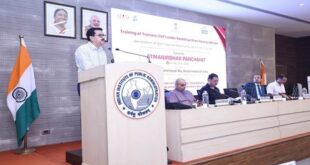Recently, the Indian Patent Office rejected an application by pharmaceutical giant Johnson & Johnson (J&J) to extend its patent on the drug bedaquiline.
What is Bedaquiline?
Bedaquiline is a drug in tablet form used to treat drug-resistant tuberculosis (TB).
What is drug-resistant TB?
- As of 2017, India accounted for around one-fourth of the world’s burden of multi-drug-resistant (MDR) TB and of extensively-drug-resistant (XDR) TB.
- MDR TB resists treatment by at least two frontline drugs in TB treatment, isoniazid and rifampicin.
- XDR TB resists these two drugs as well as fluoroquinolones and any second-line injectable drug.
- XDR TB is rarer than MDR TB.
- TB incidence in India has been on the decline, but MDR TB and XDR TB endanger initiatives to locally eradicate the disease.
How is drug-resistant TB treated?
- TB is an infection of the bacterium Mycobacterium tuberculosis in the lungs, but often in other organs as well.
- It can be treated by strictly adhering to the doses and frequencies of drugs prescribed by a physician.
- Deviations from this schedule can lead the bacteria to become drug-resistant.
- The drugs often have side effects that diminish the quality of life and/or because patients haven’t been afforded access to the requisite drugs on time.
- Drug-resistant TB is harder to treat.
Significance of bedaquiline:
- One important option for those diagnosed with pulmonary MDR TB is bedaquiline.
- In 2018, the World Health Organization replaced two injectable drugs for MDR TB with an oral regimen that included bedaquiline.
- Bedaquiline hadn’t completed phase III trials.
- Studies until 2018 found that it could be toxic to the heart and the liver.
- Hence it is recommended only as a treatment of last resort.
- India’s Health Ministry has guidelines for bedaquiline use as part of the Programmatic Management of MDR TB under the National TB Elimination Programme.
Why was the patent application rejected?
- J&J’s patent application was for a fumarate salt of a compound to produce bedaquiline tablets.
- It was argued that J&J’s method to produce a solid pharmaceutical composition of bedaquiline is obvious, known in the art and doesn’t require an inventive step.
- According to the Indian Patent Act 1970, an ‘inventive step’ is an invention that is not obvious to a person skilled in the art.
Significance of the rejection:
- India has the largest population of people living with drug-resistant TB.
- J&J’s patent on bedaquiline meant the drug cost $340 per person, plus the cost of other drugs.
- The rejection is expected to lower the cost of bedaquiline by up to 80%.
- So far, the Indian government has directly procured the drug and distributed it through State-level TB programmes.
- After July 2023, manufacturers of generic drugs will be able to produce generic versions of bedaquiline.
SOURCE: THE HINDU, THE ECONOMIC TIMES, PIB
 Chinmaya IAS Academy – Current Affairs Chinmaya IAS Academy – Current Affairs
Chinmaya IAS Academy – Current Affairs Chinmaya IAS Academy – Current Affairs



